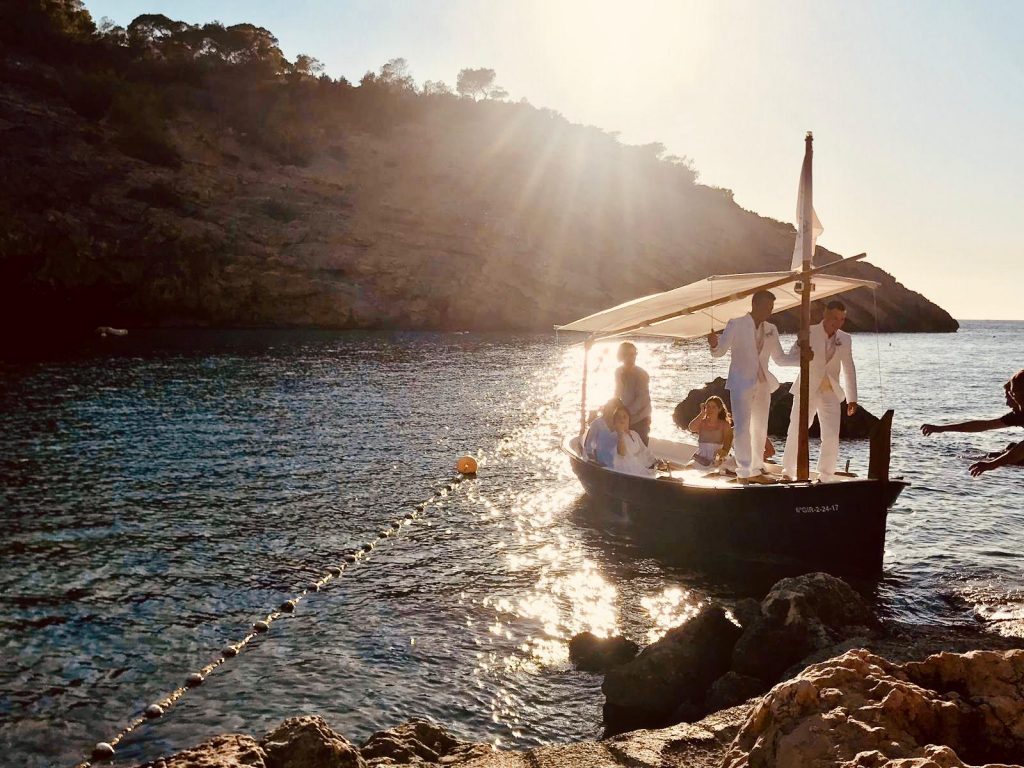… One of you surprised the other one and popped the question: with will you marry me? Or you both have agreed that you wish to celebrate your relationship and also make it official.
Joy, enthusiasm and … let’s get to work!
First of all you need to decide if you prefer to escape and enjoy an elope wedding or if you want to share it with your dear ones, and thereafter with how many of them.
Also, if you want to get married in the area where you live, or prefer to move to a location you like for some special reason.
Whether you live in the Balearics, or if you choose one of the islands for the wonderful reasons that make them unique, and you come from abroad, the possibilities in terms of beautiful and significant enclaves for your wedding are almost unlimited; Mallorca, Menorca, Ibiza and Formentera are breathtaking natural paradises.
I will uncover many of these possibilities in several blog articles, but since my priority is always that the ceremony be the authentic protagonist (together with you) of your day, since it will set the tone for the rest of the event, I’d like to explain all the paperwork you need to deal with if you get married on the islands.
But do not forget that in any one of these cases, we can co-officiate with a political or religious figure if you want a more personalized ceremony, befitting your own style.
In the case that for you the civil ceremony is a mere procedure to obtain the official certificates, because later you are going to celebrate the symbolic ceremony in the chosen location, then this last one can be entirely adjusted to your own taste.
It is at the ceremony that you are going to see each other for the first time on your wedding day. There you’ll live the best moments of complicity and emotion, when the feelings and the surprises will play a leading role and also when your guests will enjoy as they have never done it before in any wedding.
Regarding the civil wedding, it can only be done if one or both of you have been residents of the Balearics, for at least two years.
You need to request the marriage instance, either at the relevant Civil Registry office or at the court of the place where you are going to get married. Once signed, you must submit at the place where you are going to legally get married (it may be other civil agencies than the the registry, such as town halls, etc.) the sworn statements that they will provide you and your valid identity cards, passports or NIEs (original and photocopy).
You must obtain the birth certificate from the Civil Registry of the place were you were born (issued a maximum of one year earlier), and warrant your place of residence for the last two years. In the case that you live abroad, the Consulate will issue it.
In addition, you must provide the certificate of legal capacity to contract marriage or a certificate of unmarried status, as established by the law of the country of origin.
If applicable, you’ll need to provide proof of other personal situations: separation, widowhood, minority …
And very important: The witnesses! Both must provide their identification in advance (they don’t need to provide them in person at all), but they’ll need to be present on the day that they’ll sign the legal certificate with you (original and photocopy).
Do not forget the identification of the bride, the groom and the witnesses on the wedding day, even if it has already been submitted previously. I have seen last minute runs, so stressful.
Regarding religious unions, by the Catholic rite, it is the Church that usually takes care of submitting all these documents to the civil registry, and of advising you on what you need.

